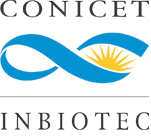Algal Research, 47, 2020
Highlights
- Azospirillum brasilense Sp245 exerts growth promotion in Scenedesmus obliquus C1S without the need of bacterial immobilization.
- Growth promotion of S. obliquus is mediated by bacterial indole-3-acetic acid
- Bacterial auxins decrease the microalgal reactive oxygen species levels, and increase cell density under nitrogen deprivation.
Abstract
There is currently an increasing interest in the use of microalgae for wastewater treatment and the use of its biomass as a feedstock for biofuels. Both of these applications are often performed more efficiently by microalgal-bacteria consortia. However, the mechanisms that account for the stability and robustness of this kind of interactions are poorly understood. In this study, we confirmed the growth promotion activity of the plant growth-promoting bacterium Azospirillum brasilense Sp245 on the microalgae Scenedesmus obliquus C1S. We show that this activity is critically dependent on bacterial indole-3 acetic acid (IAA) production, which results in a decrease in algal reactive oxygen species levels, higher cell densities and ameliorates algal cells bleaching after nitrogen deprivation. We also show a close inter-species interaction between both partners and an active expression of the bacterial Indole-3-pyruvate decarboxylase (ipdC) gene involved in production of IAA when co-cultivated.
This study extends the current knowledge of the mechanisms underlying bacteria-microalgae consortia to improve their technological applications and to better understand ecological relationships in the environment.
Keywords
Microalgae, Reactive oxygen species (ROS), Indole-3 acetic acid (IAA), Bacteria, Azospirillum brasilense, Scenedesmus obliquus
